What are Immigration Options for People above Age of 45 to Immigrate to Canada?

You have other options to boost your CRS score if you are above 45 years of age.
Applicant’s age is one of the core factors assessed in the CRS for immigration under the Express Entry Scheme. Express Entry (EE) system of immigrants’ management in Canada was launched in Jan 2015.
The EE system defines a pool of skilled workforce. It ranks different profiles based on the Comprehensive Ranking System (CRS), which is a point-based assessment of the applicant’s profiles.
How does Your Age Affect Your CRS Score?
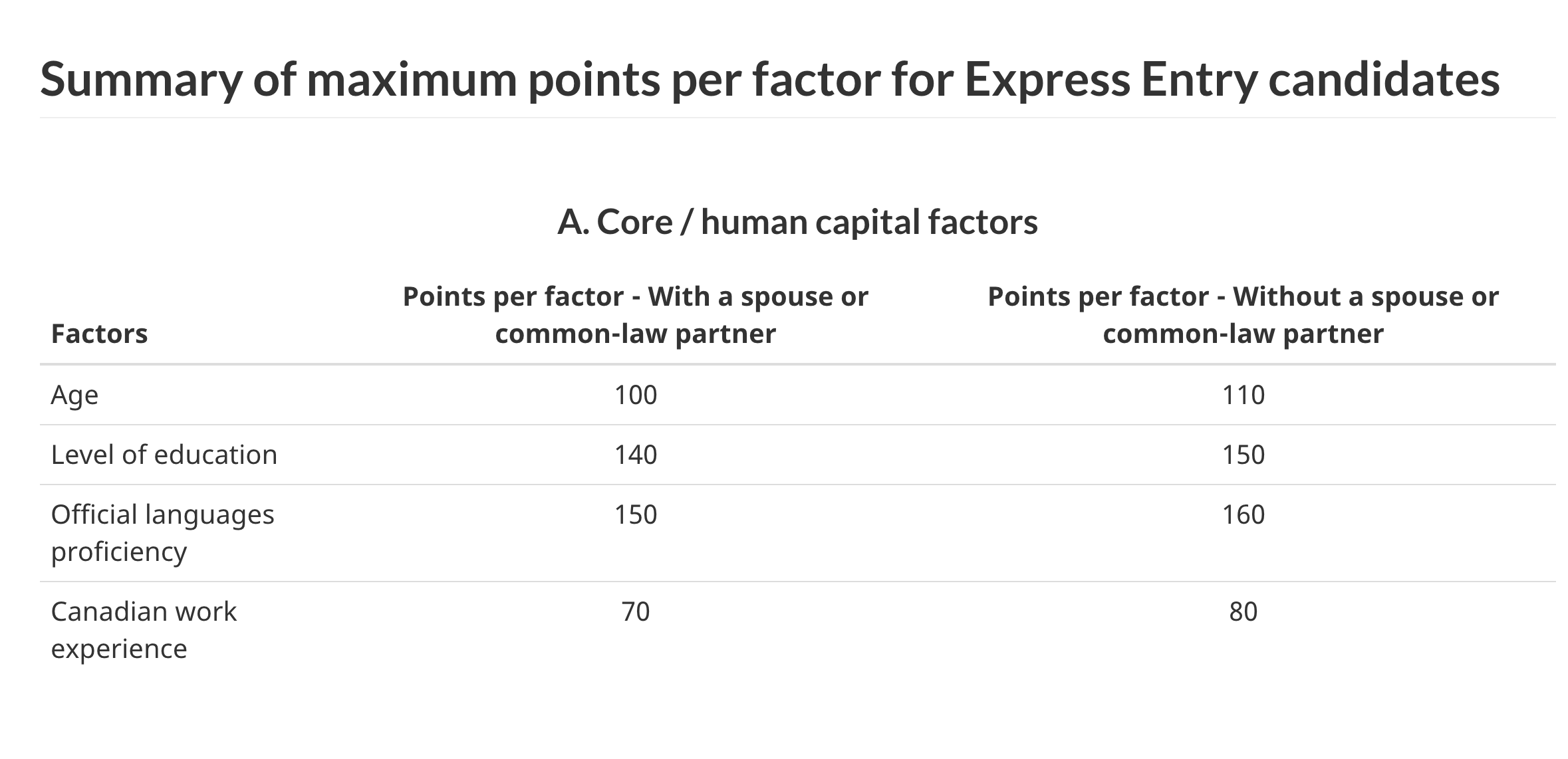
Usually, the Canadian Government prefers young immigrants. That’s why in the Express Entry system, age of the applicant has been put as a factor in its core set of parameters.
The CRS score allocates scores to applicant’s profiles based on various factors. The points-based system has capped maximum points to 1200.
These 1200 points are a combination of two sets of factors assessment which are individually capped at 600 points each.
These two sets are the core set of factors and the additional set of factors. Age as a factor for allocating points to the applicant profile has been kept in the core set of factors.
What are the Maximum Points for an Applicant’s Age in the CRS?
The maximum points that an applicant can get for his age in the CRS are 100 or 110. One hundred points are allotted to individuals who are applying as single, and 110 is the maximum score for age if the applicant is applying with a spouse or common-law partner.
Who Can Get the Maximum Points for Age in the CRS?
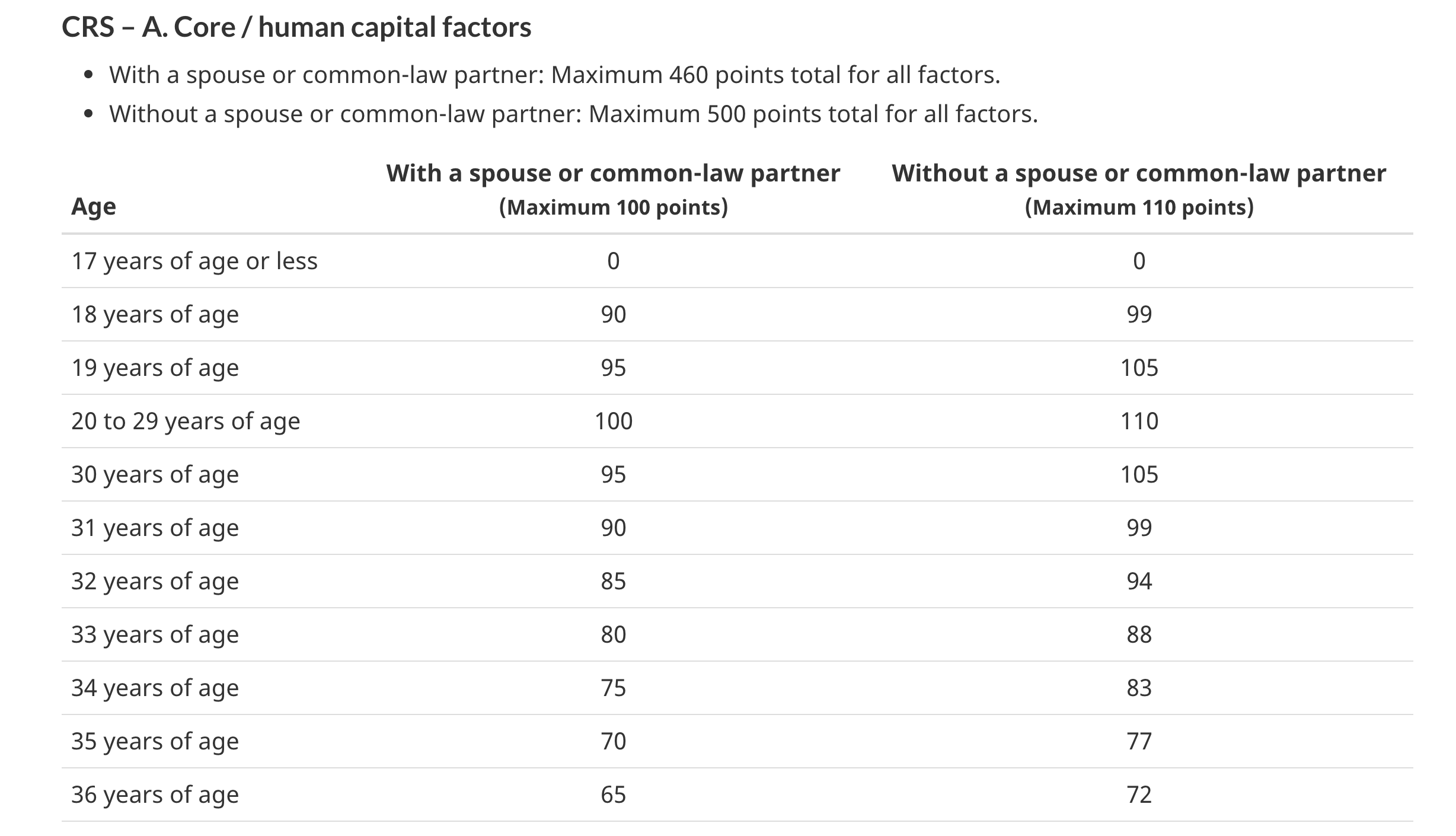
IRCC allocates the maximum points of 100 or 110 to the applicants who are in the age bracket of 20-29 years depending upon whether the individual is applying as single or with a spouse or a common-law partner.
How Does Your Age of 45 Affect Your CRS Score?
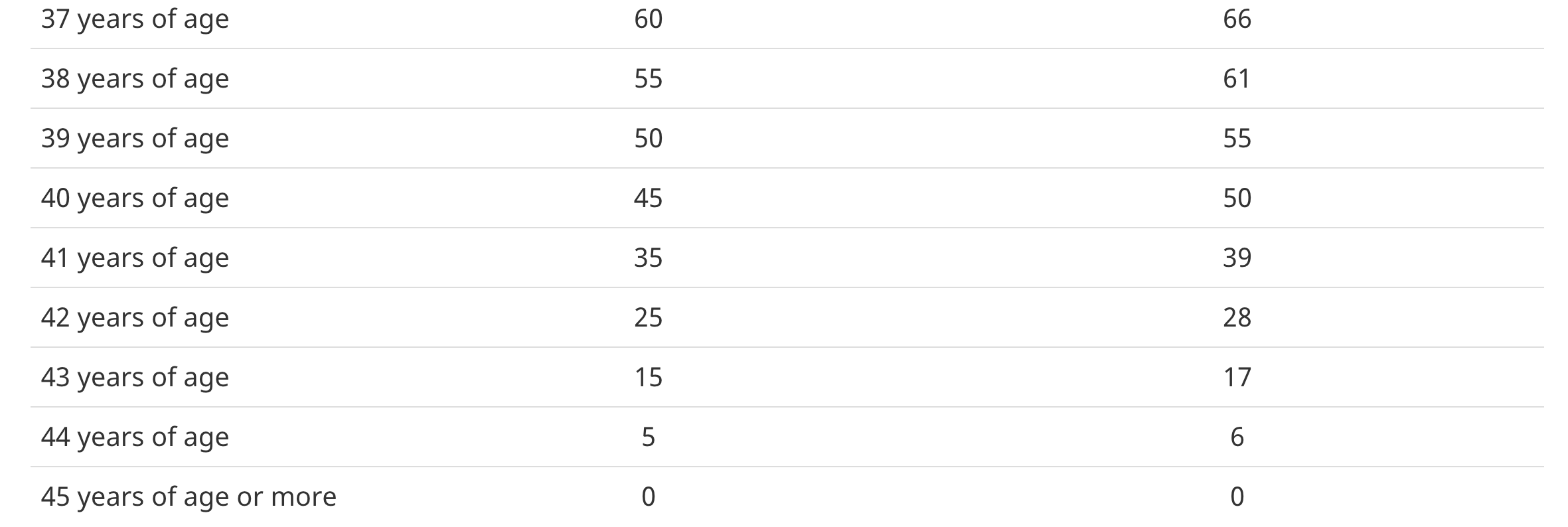
IRCC allocates the zero points to the applicants who are in the age bracket of 45 years or more irrespective of whether the individual is applying as single or with a spouse or a common-law partner.
What are the Options Available to Increase Your CRS Score If You are 45 Years or More in Age?
You can regain the points that you lose in the CRS score because of your age. A higher score in other factors in the core set such as education level (140 /150 points), language proficiency (150 /160 points), and work experience in Canada (70 / 80 points) can let you increase your total CRS score.
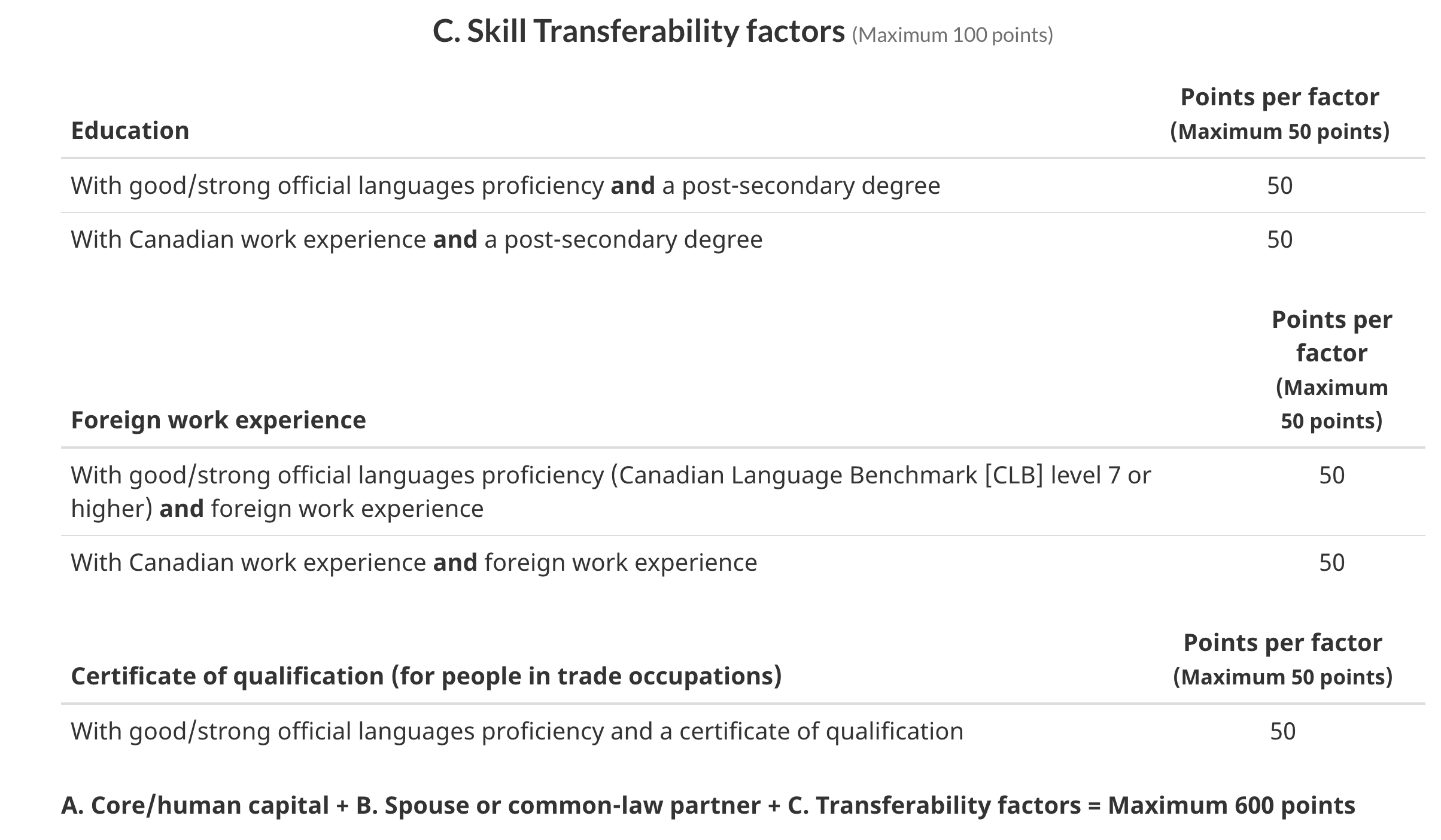
Similarly, scoring higher in other factors in the core set of factors such as under the Skills Transferability, the language proficiency or higher post-secondary degree (50 points), a higher Canadian Language Benchmark (CLB) of 7 or more (50 points), a foreign work experience (50 points), a higher certificate of qualification (50 points) can spike your total CRS score.
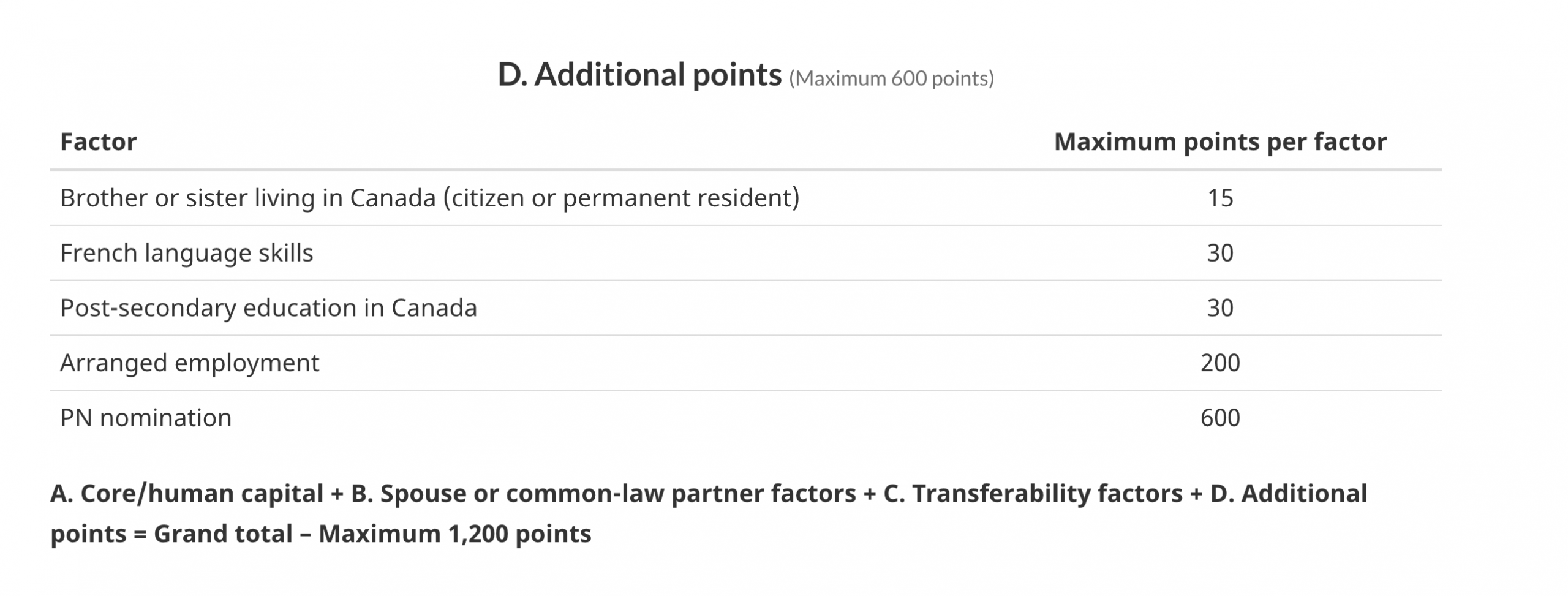
Also, scoring higher in other factors in the additional set of factors such as Provincial Nomination (Max 600 points), a job offer or arranged employment (Max 200 points) can spurt your total CRS score.
You significantly lose points in your CRS score if you fall in the age bracket of 45 years or more. The maximum points you suffer for your age in the CRS is 110 when you apply along with a spouse or a common-law partner.
Bottom Line
Your loss of points in CRS is significant due to your age higher or equal to 45 when we consider the usual cut-off for getting the invitation to apply (ITA). For example, the recent cut-off under the Federal Skilled Trades Program of EE in Nov 2019, was 471.
However, regaining those lost points utilizing other factors from the core set or the additional factor’s set can significantly boost your CRS score.

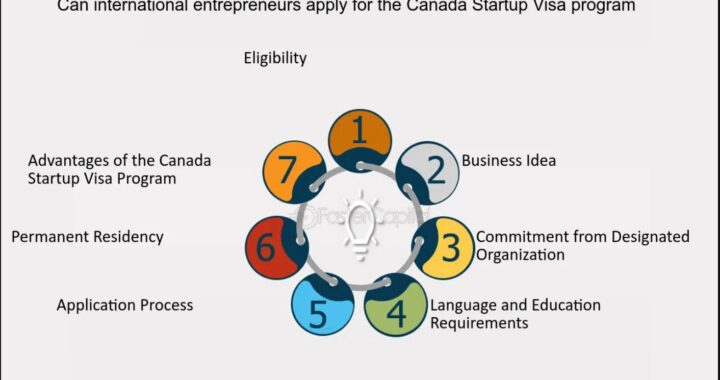 Launch Your Dreams: A Guide to Canada’s Start-Up Visa Program for Global Entrepreneurs
Launch Your Dreams: A Guide to Canada’s Start-Up Visa Program for Global Entrepreneurs  Options for Immigrating to Canada as a Healthcare Worker- Best Canadian Provinces that offer good salaries
Options for Immigrating to Canada as a Healthcare Worker- Best Canadian Provinces that offer good salaries  Immigrating to Quebec province Canada- Professions in demand with salaries- Racial Discrimination
Immigrating to Quebec province Canada- Professions in demand with salaries- Racial Discrimination  H1B Visa- Eligibility Requirements- its Duration- Process to apply and Professions in demand
H1B Visa- Eligibility Requirements- its Duration- Process to apply and Professions in demand  Who can sponsor someone for Canada Visa and eligibility requirements to get sponsored for Canada Visa
Who can sponsor someone for Canada Visa and eligibility requirements to get sponsored for Canada Visa  What are Strange but not well-known facts about Canadian Immigration
What are Strange but not well-known facts about Canadian Immigration  Immigration Process to Latvia and Job Prospects
Immigration Process to Latvia and Job Prospects  Notario Fraud- a rampant fraudulent practice trapping immigrants to US and Canada
Notario Fraud- a rampant fraudulent practice trapping immigrants to US and Canada  The high real estate prices in Canada are significantly impacting immigrants and International Students in Canada
The high real estate prices in Canada are significantly impacting immigrants and International Students in Canada